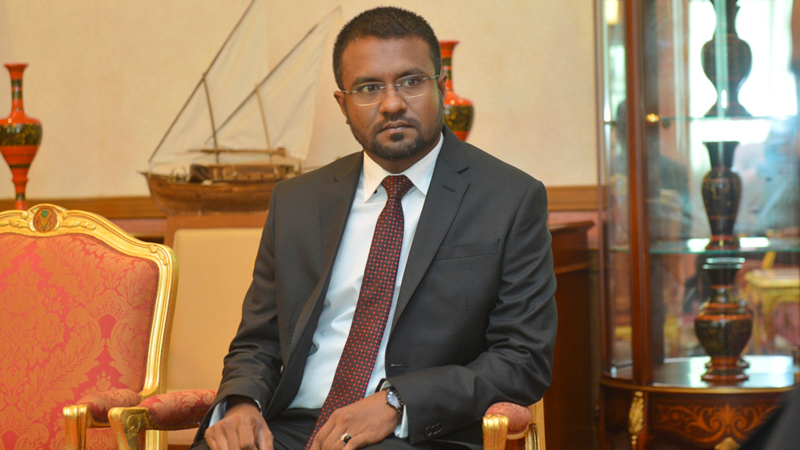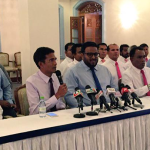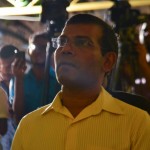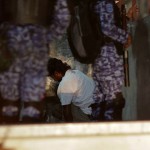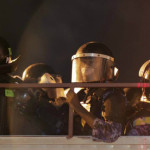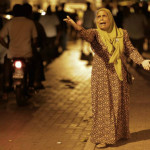Prosecutor General Muhthaz Muhsin says he will press charges against 30 of the 193 protesters arrested from a mass antigovernment protest on May 1.
“Out of the 128 cases we accepted from the police, we’ve forwarded around 98 cases to the committee on reviewing first time offenders. That means we will press charges against only about 30 people. That includes repeated offenders and the people suspected of attacking police officers at the protest,” he said.
Over 20,000 opposition supporters took to the streets on May 1 over the imprisonment of ex-president Mohamed Nasheed and ex-defence minister Mohamed Nazim. Police cracked down on protesters at dusk when they attempted to enter Malé’s restricted Republic Square.
Nearly 200 were arrested and scores were injured, including two police officers.
Muhsin at a press briefing today said his office will uphold the rights of the accused, but said he had noticed protesters were committing serious crimes at the opposition’s demonstrations.
“Article 32 of the constitution guarantees the right to peaceful assembly. The law does not allow attacking and inciting violence against law enforcement agencies, and causing terror in society. This is terrorism under Maldivian law,” he said.
Muhsin warned of harsh penalties for individuals who commit such acts and advised political parties to refrain from encouraging terrorism.
Charges against protesters at present range from disobedience to order to assaulting police officers.
Muhsin also said public prosecutors are looking at charging individuals over libel and slander following allegations by recent defectors from the ruling coalition accusing President Abdulla Yameen and tourism minister Ahmed Adeeb of links with the brutal murder of MP Afrasheem Ali in 2012.
The ex police chief Abdulla Riyaz was summoned to the police last week over comments he had made in an interview with opposition aligned Raajje TV on Afrasheem’s death and the torching of the station in 2013.
“People are acting however they want. They are trying very hard to defame state institutions in front of the public. The constitution does not give us the right to commit crimes hiding behind a political party,” he said.
“People in responsible posts are publicly accusing others of murder. We are researching on pressing charges against individuals who accuses some one of a crime and which the punishment is had.”
Muhsin said the PG office will appeal cases where the criminal court releases protesters from remand on the condition they avoid further protests: “My stand is the court cannot release a detained person imposing conditions barring him from attending protests. If I know of such a case and the subjected person do not have the ability to appeal, the PG office will appeal the case.”
The criminal court in March imposed such conditions on dozens of protesters. MP Ahmed Mahloof spent weeks in police custody and house arrest when he refused the criminal court’s conditions to stay away from protests. The high court brought the practice to an end when Mahloof appealed the criminal court’s ruling.
Muhsin also dismissed the opposition’s claim that the police is now imposing restrictions on freedom of assembly, by requiring prior permission for protests and banning the use of four wheeled vehicles in protests without prior notice.
“I don’t believe the right to protest has been narrowed in Maldives. I believe the right to protest and freedom of assembly is much wider in Maldives compared to other countries, to the extent that we eventually end up violating rights of others,” he said.
The opposition has criticized Muhsin over the rushed trial of ex-president Mohamed Nasheed on terrorism charges and for accepting a discounted luxury flat by the government. The flats were also given to the five Supreme Court judges, and several heads of independent institutions.
